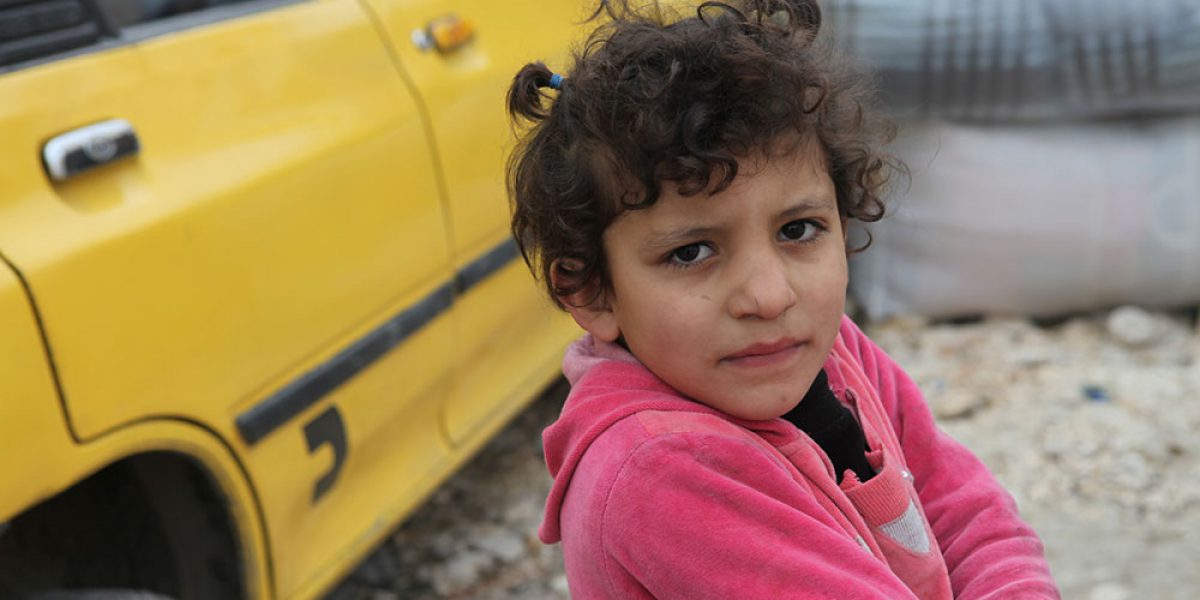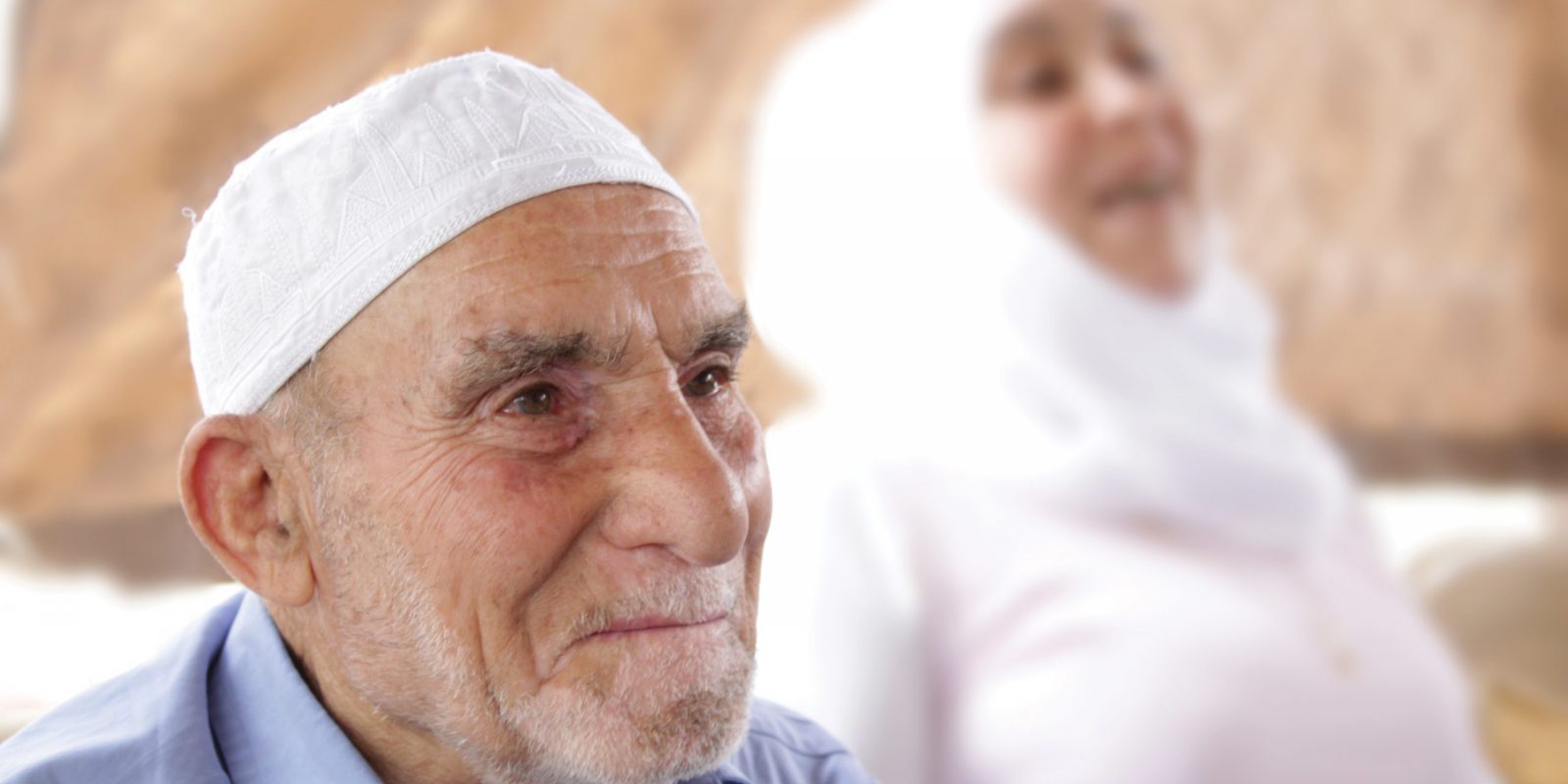
London, 24 September 2014 – Any further intervention in the Middle East must address the suffering of Syrian civilians, a global coalition of 39 leading human rights and humanitarian organisations said today. Ahead of the UN General Assembly meeting in New York, the #WithSyria coalition – comprising Amnesty International, the Jesuit Refugee Service, Save the Children and other – urges world leaders, whoever they support in the conflict, to make clear that they are on the side of civilians.
This means by using their power to ensure international law is respected and attacks on civilians including schools, hospitals, and shelters are stopped. According to the UN, direct, indiscriminate, and disproportionate attacks by groups on all sides are responsible for the majority of civilian deaths, as well as making it impossible in some areas for humanitarian agencies to reach those in desperate need.
“We need world leaders this week to set out how they will fulfil their promise of February, and work together to end attacks on civilians and ensure people get the aid they need,” said David Miliband, President and CEO of the International Rescue Committee, a member of the #WithSyria coalition.
“The world must not turn its back on the people of Syria who have been attacked both indiscriminately and directly for more than three years,” he continued.
In February this year, the UN Security Council, comprised of some of the world’s most powerful nations, unanimously voted to end direct and indiscriminate attacks on civilians in Syria and ensure humanitarian aid gets to the millions who need it. Six months later, the country is more chaotic than ever, with more than 1,500 armed groups in operation across the country, and fighting spreading into northern Iraq. Since February, the city of Aleppo alone has seen over 650 major impact strikes.
“The world is rightly horrified by recent developments in Iraq and Syria. But a military strategy won’t stop the daily distress for millions of Syrians who continue to suffer unimaginable pain, loss and fear each and every day,” said Dr Rola Hallam of Hand in Hand for Syria, a medical charity operating in some of the worst-affected areas in Syria.
“I’ve seen the devastation caused by the bombing of schools and hospitals where families were seeking refuge. It’s horrifying, it’s immoral and it has to stop.”
The situation has got so dire partially because “the killers, destroyers and torturers in Syria have been empowered and emboldened by the international paralysis,” according to Navi Pillay, until this month the UN High Commissioner for Human Rights.
The coalition of organisations from 27 countries around the world has launched a petition demanding that leaders set out the further diplomatic steps they will take to bring an end to indiscriminate attacks, as promised in February, and reminding them that while there may be no end in sight to the conflict, lives can be saved now. A video released on YouTube to bring the campaign to a wider audience has already garnered almost 400,000 views since its launch last week.
“The daily deluge of indiscriminate or deliberate bombing of civilians is wounding a whole generation”, said Karim Lahidji, President of the International Federation for Human Rights (FIDH).
“If leaders gathering in New York this week don’t seek to stem the bloodshed, and protect civilians from harm, we will sow the seeds for decades more of suffering and unrest. Acting to protect civilians in Syria is simply the right thing to do. But let us also learn from the mistakes of the past and address the deeper causes of the region’s instability – not just its most terrifying spinoff.”
February’s agreement, Resolution 2139, which simply demanded that parties adhere to their basic obligations under international law, has been largely ignored. It was rightly hailed as a diplomatic breakthrough – but has not resulted in enough change for the Syrian people, who are paying the price of global inaction. As the world’s attention shifts to the wider political crisis, the #WithSyria coalition is calling on leaders to fulfil the Security Council’s promise made in February to protect civilians.
Mr Miliband concluded: “Caught up in a conflict not of their making, Syrians are dying every day. As humanitarian agencies our mandate is to help them, but there are people we can’t reach because of the continuing attacks by all sides that also put our staff at risk.”
Ends
For further information, please go to www.withsyria.com or contact:
Nick Martlew
Global Syria Campaign Lead – Campaigns and Advocacy Manager
email nick.martlew@crisisaction.org,
tel: +44(0) 7946 831 814![]() +44(0) 7946 831 814
+44(0) 7946 831 814
Skype: nick.martlew
Notes to editors:
Under International Humanitarian Law, all parties to a conflict are obliged to distinguish between civilians and fighters. They must not target civilians and must refrain from launching indiscriminate attacks. Yet these sorts of attacks are taking place on a daily basis across Syria and are the cause of the majority of civilian casualties. Schools, markets and hospitals have increasingly come under fire.
The #WithSyria coalition is a movement of humanitarian and human rights organisations from around the world, including Save the Children, International Rescue Committee and the International Federation for Human Rights (FIDH), standing in solidarity with those caught in conflict. More information, including links to the petition and a new global campaign film, can be found at www.withsyria.com.
The full list of signatories to this release is:
- Action on Armed Violence;
- Alianza por la Solidaridad;
- Alkarama Foundation;
- Amnesty International;
- Andalus Institute for Tolerance and anti-Violence Studies;
- Arab Coalition for Sudan;
- Arab Network for Human rights Information;
- Arab Organisation for Human rights – Mauritania;
- Arab Program for Human Rights Activists;
- Cairo Institute for Human Rights Studies (CIHRS);
- Center for Victims of Torture;
- Christian Aid; Church of England;
- Center for Civilians in Conflict;
- Council for the Advancement of British Arab Understanding;
- Doctors of the World; International Federation for Human Rights (FIDH);
- Global Center for the Responsibility to Protect;
- Hand in Hand for Syria;
- Human Rights and Democracy Centre – SHAMS;
- Human Rights First Society Saudi Arabia;
- Humanistic Institute for Development Cooperation (HIVOS);
- International Rescue Committee;
- Islamic Relief;
- Jesuit Refugee Service International;
- Mercy Corps;
- Montreal Institute For Genocide and Human Rights Studies;
- Norwegian Church Aid;
- Open Doors International;
- Permanent Peace Movement;
- Physicians for Human Rights;
- Save the Children;
- South African Forum for International Solidarity;
- Syria Relief & Development;
- Syrian American Medical Society (SAMS);
- Tearfund;
- The Syria Campaign;
- United to End Genocide;
- Women’s International League for Peace and Freedom
“The daily deluge of indiscriminate or deliberate bombing of civilians is wounding a whole generation”, said Karim Lahidji, President of the International Federation for Human Rights (FIDH).

